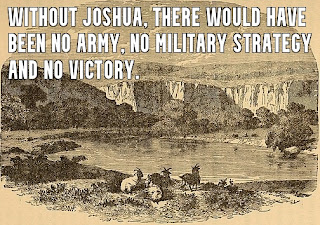In a previous post, “Representative Men”, we saw that we are either represented by Adam and what he did in Eden (sin) and what he in consequence became (a sinner), or by Christ and what he passed through in his death and resurrection. In the sequel, “Beyond Condemnation”, we saw how the gospel makes provision for us in him.
We should never consider ourselves apart from Christ.
Appreciating the Cross
We also talked about the importance of appreciating the cross, where Christ delivered believers from all condemnation associated with it. The gospel does not reach its climax in Romans 5 with us being justified by faith from our sins, but continues on to chapter 8, where we are freed from the condemnation due to us because of our sinfulness. Any condemnation we still feel results from a failure on our part to appreciate the cross. It is unbelief.
When Samuel continued mourning for Saul after God had rejected him from reigning over Israel, it displeased the Lord. The prophet needed to move on and anoint his successor. Likewise, we hinder God’s work in and through us when we still hope to improve what he has condemned. His judgment of the flesh is clear. Let us bow to it and move on! As Paul says, “The life which I now live in the flesh I live by faith in the Son of God, who loved me and gave himself for me.”
Appreciating the Resurrection
Christ’s death, burial, and resurrection were three days apart. Forty days later he ascended and was seated at the Father’s right hand, having completed the work he was sent to do.
Each of those events had its own significance for him and for us. They may be viewed separately, as they sometimes are in the scriptures, but each is incomplete without the others. Ignore or overlook one and there is no good news to tell.
When we receive Christ, we enter into benefits that he obtained for us by his work: “Do you not know that as many of us as were baptized into Christ Jesus were baptized into his death? Therefore we were buried with him.” So the first half of the action in a believer’s baptism pictures that the life we inherited in Adam was brought to an end at the cross according to God’s reckoning. The second action declares similarly that we were raised with him. How these two truths should affect our present conduct has to be worked out, but the Holy Spirit declares them as being things already accomplished and thus to be believed.
Two Aspects of the Same Inheritance
We are now seen as being “in Christ” and fellow heirs with him. No wonder Paul prayed, “Having the eyes of your hearts enlightened, that you may know what is the hope to which he has called you, what are the riches of his glorious inheritance in the saints, and what is the immeasurable greatness of his power toward us who believe, according to the working of his great might that he worked in Christ when he raised him from the dead and seated him at his right hand in the heavenly places.” Earlier he had referred to the inheritance we have in him. I think that in these italicized phrases we may be looking at two aspects of the same inheritance. Israel’s possessing of their earthly heritage under Joshua’s leadership might illustrate that.
After settlement in Canaan, it would have been foolish for any Israelite to boast of his estate as being a sample of what the army had conquered if he failed to give credit to the essential role Joshua played in the conquest. Without him, there would have been no army, no military strategy and no victory. On his part, Joshua knew that it was God’s purpose that possession of the land be realized through the nation he had led into it, his own portion and theirs thus forming a mutually enjoyed inheritance.
“He and we, in coming glory
One deep joy shall share
Mine to be forever with Him,
His that we are there!”
— Gerhard Tersteegen (adapted)
— Colin Anderson, “Blessed in Christ”, April 2013

No comments :
Post a Comment